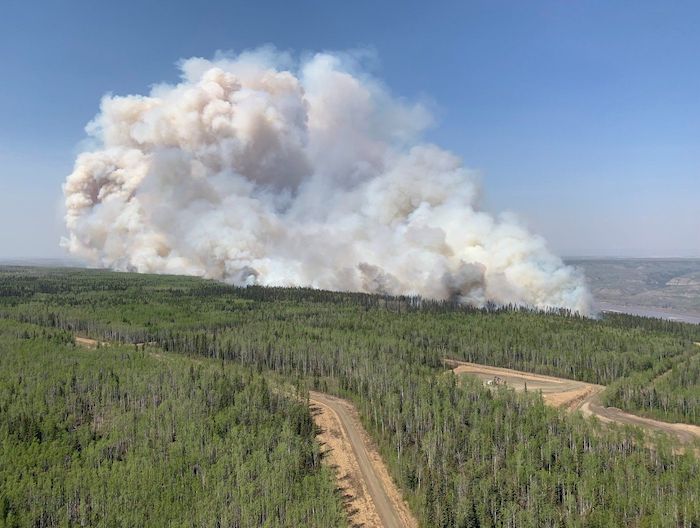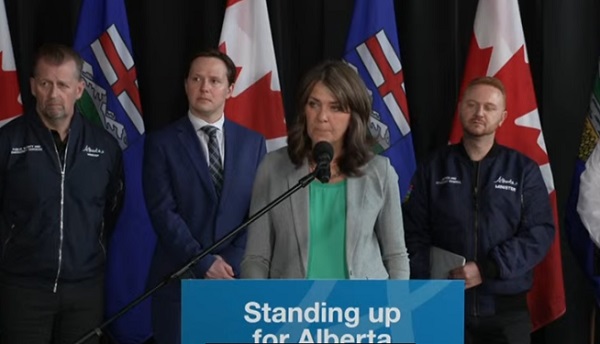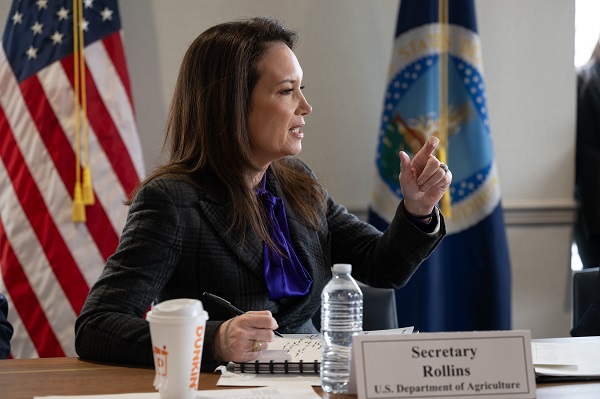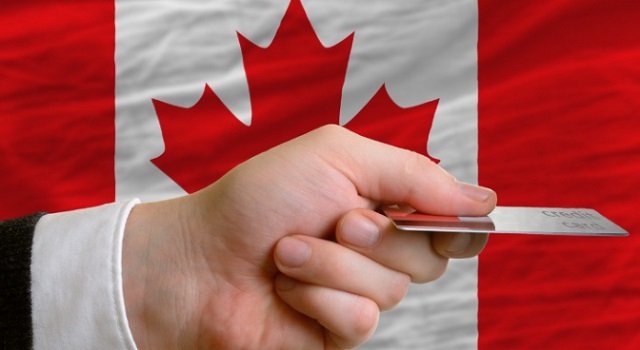Alberta
Alberta wildfire situation (May 8, 6:00 p.m.)

More than 29,000 individuals have been evacuated from communities throughout north and central Alberta.
Those evacuated due to wildfires should register at local reception centres or at emergencyregistration.alberta.
Current situation
- Alberta has declared a provincial state of emergency. Visit alberta.ca/emergency for information or call 310-4455, now available 24-7.
- The evacuation for the town of Edson as well as central and eastern parts of Yellowhead County has lifted. Some areas remain under evacuation order.
- The Big Lakes County evacuation order has been downgraded to a one-hour evacuation alert. Large portions of the affected area currently have no electrical power or natural gas services.
- The mandatory evacuation notice has been lifted in Northern Sunrise County. Residents are now allowed to return to their homes.
- Mandatory evacuation orders remain in effect for the following areas. Please check alberta.ca/emergency or download the Alberta Emergency Alert mobile app for complete information:
- Parts of Brazeau County, including the town of Drayton Valley. Evacuees should register in Edmonton at the Expo Centre, Hall C, at 7515 118 Avenue.
- The entire town of Rainbow Lake. Evacuees should register in High Level at the High Level Arena, at 10101 105 Avenue.
- Fox Creek, Little Smoky and surrounding areas. Evacuees should register at the Allan and Jean Millar Centre, at 58 Sunset Boulevard in Whitecourt.
- Parts of Sturgeon Lake Cree Nation and the Municipal District of Greenview. Evacuees should register at Memorial Hall, 4808 50 Street in Valleyview.
- Parts of the County of Grande Prairie. Evacuees should register at the Bonnets Energy Centre, 10017 99 Avenue, Grande Prairie.
- Parts of Big Lakes County. Evacuees should register at Elks Rodeo Hall on Highway 749.
- Parts of Lac Ste. Anne County. Evacuees should register at the Mayerthorpe Diamond Centre, at 4184 54 Street.
- Parts of Yellowhead County (east of Range Road 110 and east of Range Road 101 and south of Township Road 560). Evacuees should register at the Dr. Duncan Murray Rec Centre, 805 Switzer Drive, Hinton, or at the Jasper Fitness & Aquatics Centre, at 305 Bonhomme Street, Jasper.
- Parkland County and the Hamlet of Entwistle. Evacuees should register at Wabamun Jubilee Hall, at 5132 53 Avenue in Wabamun.
- Residents of the following areas should be prepared to evacuate on short notice:
- The Grovesdale area of the Municipal District of Greenview.
- Clearwater County in the area west of Beaverdam Provincial Recreation Area and east of the Bighorn Dam, including the hamlet of Nordegg.
- Parts of the County of Grande Prairie, including the Pipestone Creek area.
- The town of Valleyview.
- Lac St. Anne County, in the area north of Township Road 560 and south of Highway 43, and between Range Road 60 to 53 and the community of Cherhill.
- Athabasca County, in the area of Range Road 214 and Range Road 215 north of Township Road 674. The prepare to evacuate notice for everyone else in the area between Jackfish Lake and the Athabasca River to the west remains in effect.
- Big Lakes County
- MD of Greenview, in the area west of Highway 40 and south of the Wapiti River to the British Columbia border.
- Eighteen declared states of local emergency (SOLE) and two band council resolutions include:
- Big Lakes County
- Brazeau County
- Clear Hills County
- Drayton Valley
- Town of Edson
- MD of Fairview
- Town of Fairview
- MD of Greenview
- Town of Fox Creek
- Gift Lake Metis Settlement
- County of Grande Prairie
- Town of High Prairie
- Northern Sunrise County
- East Prairie Metis Settlement
- Peavine Metis Settlement
- Lac St. Anne County
- Parkland County
- Town of Rainbow Lake
- Yellowhead County
- The Little Red River Cree Nation (Fox Lake) has declared a SOLE through Band Council Resolution
- Whitefish Lake First Nation has declared a SOLE through Band Council Resolution
Information for evacuees
- Evacuees should register at the reception centre identified for their community so staff can quickly assist them and connect them with the resources they need.
- Evacuees with special needs who are unable to stay in an evacuation centre can request emergency financial assistance to cover hotel accommodations.
- Special needs could include having a disability, a medical condition or other family needs.
- Apply for emergency financial assistance by visiting an Alberta Supports Centre or calling the Income Support Contact Centre at 1-866-644-5135. Information is also available through the Alberta Supports Contact Centre at 1-877-644-9992.
- Any Albertan who has evacuated under mandatory order for seven consecutive days or more can apply for a one-time emergency evacuation payment at alberta.ca/emergency using an Alberta.ca Account.
- Eligible evacuees will receive $1,250 per adult and an additional $500 per dependent child under 18 years.
- Funds can take up to 24 hours to flow into accounts and will be disbursed via e-transfer.
- Evacuees unable to receive an e-transfer or who cannot apply online can contact 310-4455 for assistance and to make alternate arrangements.
- Albertans affected by wildfires, including evacuees, can access supports by calling the Alberta Supports Contact Centre at 1-877-644-9992.
- The centre is open from 8:15 a.m. to 8 p.m. on weekdays and from 9 a.m. to 3 p.m. on weekends.
- The Income Support Contact Centre is also available 24-7 and provides emergency financial assistance. Call 1-866-644-5135.
- Albertans can report a price gouging complaint by calling 310-4455.
Fire bans and other restrictions
- Unusually warm, dry weather and strong winds mean it is easier for a wildfire to start and spread.
- As a result of these conditions, there is a fire ban issued for most of the province. Fire restrictions in some parks and southern municipalities are also in effect. No open burning is allowed, including backyard fire pits, inside the Forest Protection Area. Alberta Parks and many municipalities and communities have ordered their own bans and restrictions. For more information, visit albertafirebans.ca.
- A provincial off-highway vehicle (OHV) restriction is also in place, which means the recreational use of off-highway vehicles on public land, including on designated OHV trails, is prohibited.
Wildfire activity updates
- There are currently 88 active wildfires in the Forest Protection Area, 25 of which are classified as out of control.
- Information on all wildfires is on the Alberta Wildfire dashboard and the Alberta Wildfire app.
Travel
- There are multiple road closures and advisories for north and central Alberta.
- Visit 511.alberta.ca for up-to-date information on road closures and travel advisories.
Health
- No additional evacuations were required over the last 24 hours. Evacuated patients and continuing care residents are being relocated in safe and appropriate settings. All zones are opening care spaces to accommodate those in need.
- Alberta Health Services has issued a boil water advisory for the River Bend Water Co-op in Big Lakes County as a precautionary measure.
- The advisory is in place for any remaining water within the water system, and for when water service is restored following wildfire evacuation. Instructions are available on the Alberta Health Services Coping with Emergencies website.
- All patients who are expected for assessment or treatment for a cancer diagnosis in an evacuated area are asked to call the Cancer Centre Transition Team (toll-free at 1-888-432-8865) to ensure they are receiving the care they require.
- All appointments with laboratory services, mental health and public health in evacuated communities continue to be postponed at this time. Clients will be contacted directly by AHS to be rescheduled as soon as possible. Dialysis clients are being booked at alternate sites. Home care clients impacted by evacuations are being contacted to arrange for alternative home visits and support from nursing teams.
- EMS and zones continue to be fully engaged to ensure the safe transport and care of all patients/residents. Other zones and provincial programs are assisting with reception centres and ensuring availability of spaces/equipment as needed.
- Residents affected by the wildfires who have health care-related questions and are looking for up-to-date information about the wildfires or health care resources, should visit the Alberta Health Services Wildfire Resources webpage.
- For non-emergency health advice, including information on their health care options, residents should call Health Link at 811.
Mental health and addiction resources
- If you’re struggling with your mental health or need to talk to someone about how you are feeling, resources are available:
- Call the AHS Mental Health Helpline at 1-877-303-2642 or Health Link at 811
- Call 211 or text INFO to 211 or visit ab.211.ca to access digital supports or find local services near you
- Call Counselling Alberta at 1-833-827-4230 or visit counsellingalberta.com for virtual counselling services
- Addiction supports are also available:
- Call the AHS Addiction Helpline at 1-866-332-2322 or Health Link at 811
- Call the Virtual Opioid Dependency Program at 1-844-383-7688 for same-day treatment
Air quality concerns
- As of noon today, most conditions across the province are rated “low-risk”.
- Conditions in Fort Chipewyan, Fort McKay and Fort McKay South are rated “moderate risk”.
- People who are concerned about air quality impacts on their health should refer to the Air Quality Health Index. The Air Quality Health Index is updated hourly.
- Alberta Health Services is deploying mobile air quality monitoring, as multiple communities are reporting high levels of smoke and ash residue.
Justice
- The Drayton Valley circuit court is within the Town of Drayton Valley’s evacuation order. The next sitting is scheduled for Tuesday, May 16.
Agriculture and livestock
- Agricultural societies may have room for livestock evacuated from wildfire areas. Contact the Alberta Association of Agricultural Societies.
- Evacuated farmers and ranchers:
- Should visit alberta.ca/emergency to find the most up-to-date information on the current wildfire situation.
- Can contact the wildfire resource line at 310-4455 with agriculture and livestock-related questions.
- Should register at the reception centre identified for their community so staff can quickly assist them and connect them with the resources they need.
- May need re-entry permits if they want to go back into an evacuated area to check on livestock and should check with their municipality before entering.
Alberta Emergency Alerts
- For up-to-the-minute Alberta Emergency Alert information, visit Alberta Emergency Alert.
- Albertans are encouraged to download the Alberta Emergency Alert mobile app, which immediately pushes all alerts out to subscribers.
- Albertans may notice emergency alerts for their community expiring or being removed from the system. This does not mean the emergency is over. What it does mean is that your community has been able to return to normal communication methods to update residents via local media.
- Please pay close attention to alert updates, local media and the alberta.ca/emergency website for up-to-date information on evacuation orders, reception centres and resources for people who have been impacted.
Donations
- Albertans who wish to help can make cash donations through the Canadian Red Cross or within their regions to a recognized charitable organization of their choice.
- Financial donations are preferred for disaster events, as most critical items can be sourced locally and monetary donations can be used to support vulnerable populations and be targeted to mental health initiatives in support of evacuees.
- Individuals and companies with goods or services to offer or donate to support government’s response to the wildfire event can email [email protected].
ca.
Insurance
- Albertans with questions about their insurance coverage during the wildfires should contact their insurance representative.
- The Insurance Bureau of Canada (IBC) has updated information about insurance during wildfires. Albertans affected by wildfires can visit the IBC web page for information on property and auto insurance.
- Albertans can call IBCs Consumer Information Centre at 1-844-2ask-IBC (1-844-227-5422) or email IBC’s regional office at [email protected] (Western and Pacific regions).
Alberta
Alberta pushes back on illegal U.S. tariffs

Alberta’s government is implementing a proportionate, measured response to U.S. tariffs and taking decisive action on internal trade with free trade and mobility agreements.
As part of its non-tariff retaliatory measures, Alberta is altering its procurement practices to ensure Alberta’s government, as well as agencies, school boards, Crown corporations and Alberta municipalities, purchase their goods and services from Alberta companies, Canadian companies or countries with which Canada has a free trade agreement that is being honoured.
“I will always put the best interests of Alberta and Albertans first. These non-tariff actions are measured, proportionate and put an emphasis on defending Alberta and Canada against these economically destructive tariffs imposed by U.S. President Donald Trump, while breaking down restrictive provincial trade barriers so we can fast-track nation building resource projects and allow for the unrestricted movement of goods, services and labour across the country. I understand this is an uncertain time for many Albertans, and our government will continue to do all it can to prioritize Alberta’s and Canada’s world-class products and businesses as we face this challenge together. I also look forward to working with my provincial counterparts to help unite Canada and ensure free and fair trade throughout our country.”
Alberta’s government has also directed Alberta Gaming, Liquor and Cannabis to suspend the purchase of U.S. alcohol and video lottery terminals (VLTs) from American companies until further notice. This will ensure Alberta and Canadian brands take priority in restaurants, bars and on retail shelves.
“We are committed to putting Canadian businesses first. By suspending the purchase of U.S. produced alcohol, slot machines and VLTs, we are ensuring that Alberta and Canadian brands take priority in our restaurants, bars and retail stores. We will continue to take bold steps to support local industries and strengthen our economy.”
To encourage the purchase of stock from vendors in Alberta, Canada and other countries with which Canada has a free trade agreement, the government will help all Alberta grocers and other retailers with labelling Canadian products in their stores. In the coming weeks, Alberta’s government will augment these efforts by launching a “Buy Alberta” marketing campaign. Spearheaded by Minister of Agriculture and Irrigation RJ Sigurdson, this campaign will remind Albertans of their options for local food and the importance of supporting Alberta’s agriculture producers and processers.
“Alberta’s agriculture producers and processers are the best in the world. Although these U.S. tariffs are incredibly concerning, this “Buy Alberta” campaign will put a spotlight on Alberta’s farmers, ranchers and agri-food businesses and support Albertans in choosing goods from right here at home.”
Building on Alberta’s reputation as a leader in removing barriers to trade within Canada, Alberta’s government will continue to push other provinces to match our ambition in providing full labour mobility and eliminating trade barriers through work like mutual recognition of regulations. This will allow for goods, services and labour from other provinces to flow into and out of Alberta without having to undergo additional regulatory assessments.
“While no one wins in a tariff war, this situation underscores the need to develop Canada’s trade infrastructure and the diversification of our trading partners and could be the catalyst to unlocking Canada’s true potential. As we look at how best to support Albertans and our businesses, we must also work to reduce internal trade and labour mobility barriers while expanding markets for Alberta energy, agricultural and manufactured products into Europe, Asia, the Americas and beyond. Albertans and Canadians are counting on us.”
Alberta’s government is also focused on doubling oil production. With U.S. tariffs in place on Canadian energy products, Alberta is looking elsewhere for additional pipeline infrastructure, including east and west, in order to get our products to new markets.
Alberta’s government will continue to engage with elected officials and industry leaders in the U.S. to reverse these tariffs on Canadian goods and energy and rebuild Canada’s relationship with its largest trading partner and ally.
Quick facts
- On March 4, U.S. President Trump implemented a 25 per cent tariff on all Canadian goods and a 10 per cent tariff on Canadian energy.
- The U.S. is Alberta’s – and Canada’s – largest trading partner.
- Alberta is the second largest provincial exporter to the U.S. after Ontario.
- In 2024, Alberta’s exports to the U.S. totalled C$162.6 billion, accounting for 88.7 per cent of total provincial exports.
- Energy products accounted for approximately C$132.8 billion or 82.2 per cent of Alberta’s exports to the U.S. in 2024.
- About 10 per cent of liquor products in stock in Alberta are imported from the United States.
- U.S. products represent a small minority of the beer and refreshment beverage categories; however, a significant number of wines originate in the U.S.
- In 2023-24, about $292 million in U.S. liquor products were sold in Alberta.
- Alberta has been a longstanding supporter of reducing barriers to trade within Canada. In 2019, the province removed 21 of 27 exceptions, including all procurement exceptions, and narrowed the scope of two others. Since then, the province has only added 2 exceptions, which allow for the management the legalization of cannabis.
- Removing party-specific exemptions has helped facilitate even greater access to the Alberta market for Canadian companies in the areas of government tenders, Crown land acquisition, liquor, energy and forest products, among others.
Alberta
Securing the Alberta-U.S. border

Alberta’s border security plan is advancing rapidly with more measures in place to stop illegal activity at the Alberta-U.S. border.
In December 2024, Alberta’s government announced a $29-million investment to create an Interdiction Patrol Team (IPT) within the Alberta Sheriffs to crack down on illegal cross-border activities threatening lives and livelihoods on both sides of the Alberta-Montana border. Alberta’s government recognizes the need for swift and decisive action that will curb drug trafficking and illegal border crossings to strengthen the province’s border security.
The team’s first cohort has been deployed and hiring will continue until all 51 positions are filled. The IPT is now operational, working closely with the RCMP and Canada Border Services Agency to identify and apprehend individuals suspected of drug smuggling, human trafficking and other illegal activities involving movement across the Canada-U.S. border. To date, 20 members of the Alberta Sheriffs have been assigned to the IPT to patrol between entry points, and to vehicle inspection stations along Alberta’s side of the border.
 Sheriffs Interdiction Patrol Team map
Sheriffs Interdiction Patrol Team map
“We are committed to strengthening security along Alberta’s southern border to put an end to the dangerous criminal activities that are destroying lives on both sides of the border. In addition to launching our new Interdiction Patrol Team, we are building three new vehicle inspection stations and increasing highway monitoring for suspicious activity. Our plan will ensure that Alberta’s southern border is secure.”
“Alberta’s government is increasing border security and has zero tolerance for illegal activities that threaten the well-being of Albertans or Alberta’s economy. The Alberta Sheriffs Interdiction Patrol Team puts more boots on the ground to identify where and when these activities are taking place, boosting security along our southern border and disrupting dangerous cross-border human, drugs and weapons trafficking in both directions. Let this be a message to all potential traffickers, especially those who traffic deadly fentanyl, you will get caught and you will go to jail.”
Alberta’s government continues to acquire equipment that will enable the IPT to detect and apprehend individuals committing illegal activity, including drones, night-vision optics and patrol canines. This team will patrol to detect and intercept illicit drugs, illegal firearms and unlawful attempts at illegal international border crossing. The IPT will be fully operational in coming months.
Through this process, Alberta has identified further significant concerns with the shared Canada-U.S. border. In response, Alberta’s government is advancing further measures to increase the security of the southern border.
In addition to the IPT, Alberta Transportation and Economic Corridors is dedicating $15 million over two years for three new vehicle inspection stations near the border, if Budget 2025 passes. This will give Sheriffs dedicated facilities to inspect commercial vehicles, whether they’re crossing into the United States or coming into Canada. The stations will be located on Highway 1 at Dunmore, Highway 3 at Burmis and Highway 4 at Coutts. The stations will include enhanced parking lanes for inspections, and winter ready buildings for year-round inspections.
Another measure undertaken by Alberta’s government is to train highway maintenance workers to identify and report suspicious activity during highway maintenance operations. Volker Stevin has a contract to maintain about 600 kilometres of highways in southern Alberta and by empowering their workers to identify and report suspicious activity, Alberta’s government is layering further security measures without adding additional costs.
“Border security is a priority, and Alberta Transportation and Economic Corridors is doing its part to enhance security and surveillance through three new vehicle inspection stations and with the help of our highway maintenance contractors, who will be trained to detect and report suspicious activity, providing an extra pair of eyes along the border.”
“The Interdiction Patrol Team will play a key role in eradicating crimes that seek to exploit the Alberta-Montana border in both directions. The Alberta Sheriffs are pleased to collaborate with the RCMP, Canada Border Services Agency and our counterparts in the United States as we work to keep our shared border safe and secure.”
Alberta’s government also amended the Critical Infrastructure Defence Regulation in January 2025 to add a two-kilometre-deep border zone north of the Alberta-United States border to the definition of essential infrastructure under the Critical Infrastructure Defence Act. The act gives peace officers the authority to arrest individuals caught trespassing on, interfering with or damaging essential infrastructure and who do not have a lawful right, to be on the essential infrastructure.
“Amending the Critical Infrastructure Defence Regulation is a key piece of our efforts to strengthen security in the area near the international border. We have quickly taken action that will support law enforcement in improving public safety, and tackle cross-border crime, drugs, illegal migrants and human-trafficking.”
Quick facts:
IPT will be supported by:
- 51 uniformed officers equipped with carbine rifles (weapons for tactical operations)
- 10 support staff, including dispatchers and analysts
- four drug patrol dogs, critical to ensure reasonable suspicion to search vehicles
- 10 cold weather surveillance drones that can operate in high winds with dedicated pilots
- four narcotics analyzers to test for illicit drugs
The IPT has already conducted more than 3,300 stops/contacts and has been successful in:
- assisting with four Northbound unauthorized border crossings
- executing 18 warrants and conducting two Judicial Interim Release hearings
- conducting three arrests related to possession of cocaine for the purpose of trafficking
Related news
- A plan to secure Alberta’s southern border (Dec. 12, 2024)
-

 Business1 day ago
Business1 day ago“The insanity is ending”: USDA cancels $600k grant to study transgender men’s menstruation
-

 International11 hours ago
International11 hours agoIs Russia at War With Ukraine, or With the West?
-

 Censorship Industrial Complex24 hours ago
Censorship Industrial Complex24 hours agoHow America is interfering in Brazil and why that matters everywhere. An information drop about USAID
-

 Daily Caller1 day ago
Daily Caller1 day agoBiden’s Dumb LNG Pause Has Rightfully Met Its End
-

 Business17 hours ago
Business17 hours agoReport: $128 million in federal grants spent on gender ideology
-

 Agriculture1 day ago
Agriculture1 day agoUSDA reveals plan to combat surging egg prices
-

 COVID-191 day ago
COVID-191 day agoCovid Response at Five Years: Conclusion
-

 Business1 day ago
Business1 day agoWe’re paying the bills, why shouldn’t we have a say?


